GPIC: Role of Bahrain’s Fertilizers in World’s Food Security
Abdulrahman A.Hussain Jawahery, President of Gulf Petrochemical Industries Co. (GPIC) and Member of Parliament – Biography
AG fertilizer producers are expected to continue to play a strategic role in meeting this challenge by contributing towards international efforts to increase food production by substantially increasing their share of exports.
Interview with Abdulrahman A.Hussain Jawahery, President of Gulf Petrochemical Industries Co. (GPIC) and Member of Parliament
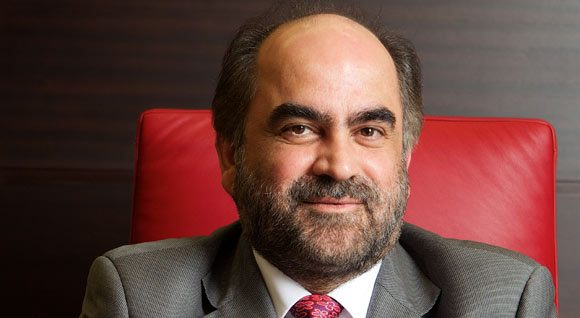
How do you see the future evolution of the fertilizer industry in the region? What are the challenges and opportunities?
The Arabian Gulf (AG) region today is a major exporting region for nitrogenous fertilizers, accounting for nearly 16% of the world’s nitrogen exports.
AG fertilizer producers are expected to continue to play a strategic role in meeting this challenge by contributing towards international efforts to increase food production by substantially increasing their share of exports.
With the combination of population growth on the one hand and the diminishing availability of arable land on the other, the role of nitrogenous fertilizers in the production of food has become crucial. AG fertilizer producers are expected to continue to play a strategic role in meeting this challenge by contributing towards international efforts to increase food production by substantially increasing their share of exports.
This would be possible by taking the opportunity of the advantages available to the region in the form of abundant availability of natural gas and easy access to main shipping routes, particularly to the rapidly growing economies of India, China and South East Asia.
In addition to the exports of nitrogenous fertilizers, Saudi Arabia will also be producing and exporting phosphates. This will add a new dimension to the Arabian Gulf arsenal of nutrient exports. Saudi Arabia will soon become the second largest exporter of DAP (di-ammonium phosphate) in the world after the USA. Once operational the Maa’den Plants in Saudi Arabia will have a capacity of 2.9 million tonnes of DAP product, which would represent 18% of the World DAP export market.
What are your expectations for the global food sector in the next 5 years?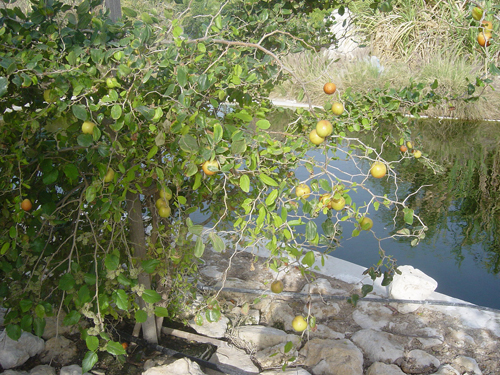
There is some serious concern at the moment about the capability of world agricultural production to keep pace with the growth of world population. Food and nutrition security, the main agricultural goal, is not just a matter of ensuring adequate food supplies but also ensuring their availability and stability, accessibility and affordability.
As of 2010, the world population is at 6.8 billion and is projected to grow by close to 1 percent annually between 2007 and 2016 and reach more than 9 billion by 2050 (US Census Bureau, 2010) with the majority of humanity living in urban areas. The daunting task for the agriculture sector is to produce the needed food, feed, fibre and bio-fuels for the growing population in a manner that will protect the environment, preserve biodiversity and mitigate climate change, all at the same time. Because of the constraints on the expansion of land and water resources, growth in future food supply predominantly depends on agricultural intensification.
Further, I would like to add that in addition to fertilizers, the AG producers will also contribute through exports of other petrochemicals that feed the synthetic fibre, plastics and chemicals industries. The input of these products will play a major role in meeting the increasing demands in fast growing economies. A trickle down effect of such economic boost is their ability to import food from other regions where there is a surplus.
What was the effect of the crisis international and local on Bahrain? What is the future?
As you are aware, Bahrain for the past decade or so has worked tirelessly to develop a sound and sustainable financial system that gives confidence to local, regional and international investors.
Bahrain succeeded during this past decade to achieve its goal in this regard and the proof of this success was acid tested during the 2008 financial crisis which rocked the world finances. I do not believe that there is any person, institution or country that was not affected by the financial crisis. This is a fact; however the degree of affect varied. We in Bahrain were not affected to the degree in which other countries were, including some of the major economies in the world. 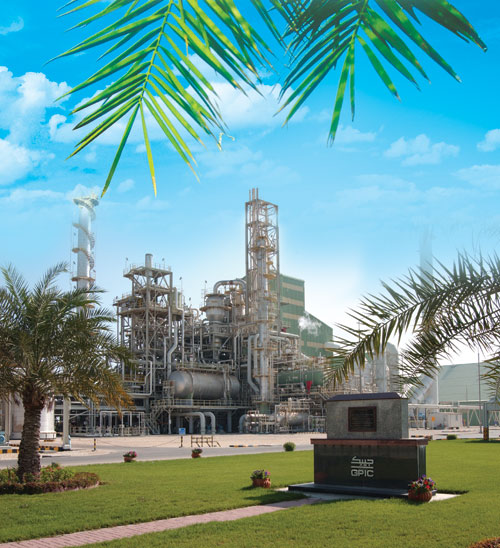
This again was as a result of ensuring that the GDP growth rate in Bahrain was on levels that we could sustain during both good and bad times. Before the financial crisis Bahrain’s GDP was growing at around 5-7% and during 2008 and 2009 the GDP growth was around 4%. This is regarded as a remarkable achievement considering that most developed economies had either negative or extremely low GDP growth during these years. It was therefore also easier to embark on a recovery plan and we expect GDP growth in 2011, for example, to be around 5-5.5%.
Most of the financial institutions in Bahrain are sound and operating as normal although, yes, affected by their global business activities and investments. Very few smaller organisations may have been affected as a result of this crisis, but not to a significant degree that would affect the overall performance of the country.
In a recent interview you mentioned “the firm is in the best condition in its 27-year history”.
What does this mean? How is it going to affect your investment strategy?
I have always maintained that GPIC has had an interesting past and a glorious present and a very promising future.
When our plants went on stream in 1985-86 the global petrochemical prices had crashed and the netbacks were not adequate to cover our costs of production; more importantly, we were not in a position to service our debts. The financial crisis was a blessing in disguise; the bankers imposed strict terms for re-structuring the debt. GPIC was required to operate and maintain the plants at optimum levels for as long an uninterrupted period as possible to keep unit (per tonne) production costs as low as possible.
The adversity provided a test (and an opportunity) of our organisational resolve to overcome the odds. We did so with flying colours by improving our performance year after year to become one of the most cost effective producers, not only in the region but in the world.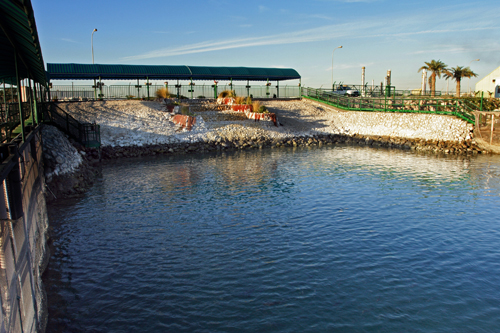
This obsession with continual improvement in every sphere of activity has led to GPIC becoming a world class petrochemical producer that is rated very highly and regarded as a role model by its peers, customers, vendors, original equipment manufacturers, licensors, and consultants, but more importantly by the people and governments of Bahrain and the GCC.
Add to the reputation the financial dimension and the awards bestowed upon the company, we can say with pride that we are going through a glorious era.
The kingdom is making all out efforts to explore for gas in the country and also seeking external sources for procurement of gas. We have several expansion and diversification plans in the pipeline that are ready to be implemented from all techno-commercial aspects. We are just waiting to launch these at the first confirmation of availability of gas. These projects are very viable and profitable and will be a boon not only to GPIC, but will also provide a comprehensive boost to the Bahrain economy.
You mentioned that the company is debt free and cash rich.
How are you going to utilize the excess liquidity? What are your investments going to be?
At the time of forming GPIC, the Memorandum of Association and Articles of Association of the company clearly set out a mandate which specified the scope of business it could undertake.
Accordingly, GPIC’s future expansion plans would mainly have to hinge around the petrochemicals sector. The growth in this sector is largely guided by the availability of gas to the company.
Accordingly, GPIC’s future expansion plans would mainly have to hinge around the petrochemicals sector. The growth in this sector is largely guided by the availability of gas to the company.
As you are aware, the kingdom is making concerted efforts to explore and procure more oil and gas. We are very optimistic about the outcome of these efforts and as soon as availability of gas is indicated to us, we will embark upon the expansion plans, which are in a state of utmost readiness.
In view of the financially successful results arising from the current operations, GPIC has repaid its debts and currently has an enviable no borrowings status.
Until such time as the expansion project goes on stream, it is deemed financially imprudent to sit on funds that are not readily deployable by us. Accordingly, the profits derived each year are distributed as dividends to our shareholders, who can deploy them more gainfully in their respective organisations.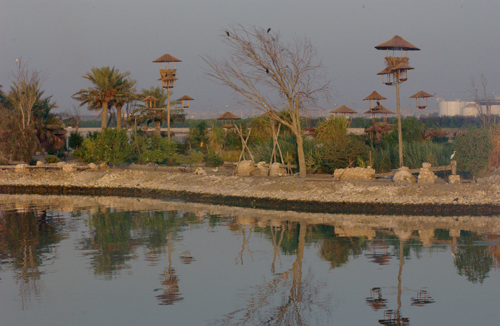
GPIC’s vision is to be a global, dynamic world-class petrochemical and fertiliser company of choice recognised for excellence.
What are the major challenges that GPIC is facing today?
Over the years we have operated and maintained our plants in an optimal fashion, reliably, safely and profitably. This fact has been recognised by our peers and marketing consultants at a global level. Several independent international surveys have classified GPIC as the best petrochemical company in the world in its class of business. Yet GPIC does not rest on its laurels of excellence and has embarked upon a programme of ‘BEYOND EXCELLENCE’, where we strive to continually improve further and further.
We have nurtured an organisational culture which thrives on a ‘ONE TEAM’ spirit that can deliver optimal results.
We are poised to undertake expansion and diversification projects, the implementation of which is mainly subject to availability of gas.
The company employs more than 474 people of whom 95% are Bahrainis, and the people of GPIC is said to form the golden key to the company’s future success and achievement.
How training programs are managed? / What is your training strategy? How important it is for GPIC to employ locals?
The company employs more than 474 people of whom 95% are Bahrainis, and the people of GPIC is said to form the golden key to the company’s future success and achievement.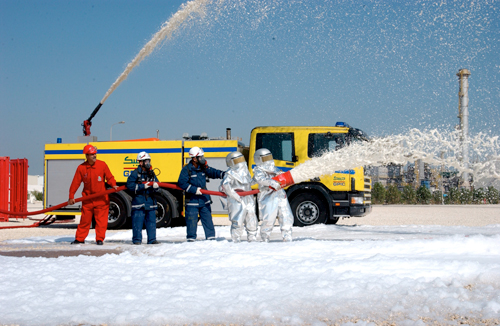
Our employees are certainly the most valuable assets we have. The numerous achievements we made and the international reputation we enjoy are a result of the hard work, dedication and professionalism of our employees. Obviously, we need to invest in them and invest generously. We do this through our very well established Training and Development Centre that has in the past year been renamed the Academy of Leadership and Learning (ALL) to reflect the role of GPIC in producing future leaders not only for the company but for the whole Kingdom of Bahrain while at the same time emphasising the importance of self-learning and development through the award winning e-Learning Centre and vast reading resources made available at ALL.
Our Training Programmes known as Individual Development Programmes (IDP), are very well established, has been refined several times over the years and are continuously reviewed to suit the individual’s needs, the company’s requirement and to include the latest developments in the field. These refinements and reviews are methodically carried out by our Training, Development and Mentoring Committee made up of Managers and Training and Development Superintendent. The IDPs cover new recruits such as engineers, management trainees, IT professionals, operators and technicians. Each programme contains the objectives, deliverables, performance measured and target dates.
Reviews and interviews are conducted regularly to assess the performance of the trainee and measures taken to progress him/her further. The Academy of Leadership and Learning plays a pivotal role in ensuring the success of these programmes through follow up and providing the resources required.
Our Training strategy, on the other hand, hinges on a number of factors, chief amongst them:
-
-
Corporate objectives and strategies.
-
Employees’ needs.
-
Available resources.
-
It is essential to point out here that GPIC goes the extra mile to extend training not only to its employees but also to the wider community. Annually we train hundreds of students from schools and universities either during the academic year as part of the student’s graduation requirements or during the summer holidays.
Our association with both His Royal Highness the Crown Prince International Scholarship Programme and inJAz Bahrain is very solid providing financial as well as material support to both programmes. Our much acclaimed Environmental Research and Environmental Lecturing programmes for secondary school students have been running for years now and benefited thousands of students. We believe our role and commitment to train Bahraini nationals in general is equal if not more to that of our employees.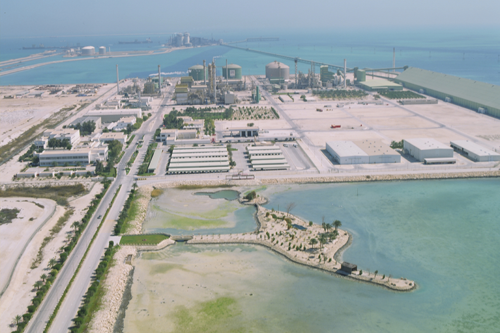
Finally, GPIC looks at employing locals as both a strategic choice and a moral obligation. Today, GPIC is led by 100% Bahrainis executive management team. Overall, 95% of our workforce is Bahrainis. Considering the high-tech sector that we operate in, this is a great achievement by any standard. Employing locals not only proved extremely beneficial for the company but for the Kingdom’s economy as a whole.
What is GPIC’s main responsibility in economic development of Bahrain?
When GPIC was launched in 1979, the primary objective was not merely to add value to Bahrain’s natural gas resources by producing and exporting petrochemicals to improve the country’s export earnings. There were other related objectives too. It was the first petro-based industrial unit where three GCC counties (namely, Bahrain, Kuwait and Saudi Arabia) would collaborate to bring out the true essence of Gulf co-operation.
SABIC of Saudi Arabia and PIC of Kuwait have not only invested in the capital of GPIC, but have also contributed through guidance and assistance provided both at Board and organisational levels, especially in the field of effectively marketing our products globally.
Further, GPIC also provided the opportunity to employ locals. In a highly sophisticated petrochemical industry such as ours, there were not sufficiently qualified and experienced locals available to fill every position in the company. Therefore, GPIC had to embark upon a very intensive and dedicated training programme to develop Bahrainis to be competent enough to take up these positions. The efforts have borne fruit as over 95% of the workforce is now Bahraini.
A major industry such as ours needs a lot of support services and goods. GPIC provided the local vendors and contractors with the opportunity to provide these. Hence, GPIC has made a major trickle-down contribution to the economy.
As GPIC became a success, it has shared its financial success by becoming a good corporate citizen and contributed to several charitable, social and educational projects in the kingdom.
The efforts have borne fruit as over 95% of the workforce is now Bahraini.
GPIC is considered a role model in the protection of the environment as it is the first industrial company to use practical demonstration projects to verify the eco-friendliness of its operations, such as certification to the ISO-14001 environmental standard and construction of the Bird Sanctuary, Fish Farm and various gardens.
How do you approach the question of sustainability and food security?
In order to meet the great challenge of ensuring world food and nutrition security, while at the same time meeting the needs of the growing population, protecting the environment, preserving biodiversity and mitigating climate change, a number of important initiatives have been undertaken by the global fertilizer industry:
-
Modernising fertilizer production capacities to reduce the environmental footprint at production sites. The move towards higher capacity plants has helped implement more efficient technologies as capacity upgrades offer a cost-effective opportunity to install better performing technology and reduce unwanted emissions.
-
Developing standards and performance measures for the promotion of efficient, safe and secure production, storage and transport of plant nutrients in a sustainable manner.
-
Improving fertilizer use efficiency. The industry is developing products with built-in enhanced efficiency, together with promoting fertilizer best management practices aimed at using the “right product, at the right rate, at the right time and the right place”.
-
The initiative on fertilizer use and human health will enable better understanding of the positive and negative impacts of fertilizer use on human nutrition. To help alleviate the problem of malnutrition, improving nutrition security through micronutrient applications has now started.
-
The “Farming First” initiative is a call for food security and sustainable agriculture to the UN Commission on
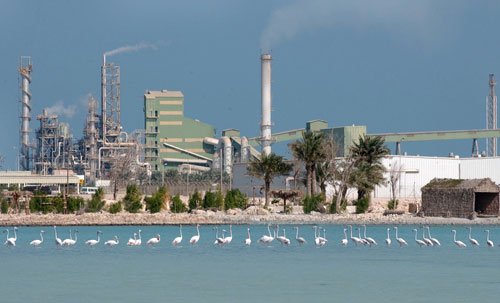 Sustainable Development. It helps stakeholders focus on the common goal of ensuring food security; encouraging increased transparency on the funding priorities, and adherence to collaborative actions that are clear and well-coordinated.
Sustainable Development. It helps stakeholders focus on the common goal of ensuring food security; encouraging increased transparency on the funding priorities, and adherence to collaborative actions that are clear and well-coordinated. -
The water management initiative is aimed at developing and promoting strategies and best management practices which improve efficiency of water and fertilizer/nutrient use.
-
The significant risks and opportunities that climate change present for agriculture, food supplies and the global fertilizer industry, create an imperative for the industry to contribute to mitigation and adaptation in the context of achieving a more sustainable path to global food security.
-
Improving the “last-mile delivery” of products and knowledge in developing countries is a major challenge, in order to achieve a meaningful impact of the fertilizer best management practices. Efforts are underway to encourage wide ranging public-private partnerships involving multiple stakeholders.
How do you envisage GPIC in 2015?
As you may be aware, GPIC today is regarded as one of the best operating petrochemical complexes in the world. It is the benchmark and role model for sustainable development with sound financial performance, the best safety record in any petrochemical complex in the world, and one of the best complexes caring for the environment and promoting environmental awareness for sustainable development in Bahrain, regionally and internationally.
GPIC has a solid corporate social responsibility and responsible care programme which was certified by international organisations and received this certification as the first complex in the Middle East to have such a comprehensive responsible care programme. Therefore, although GPIC is not growing in its production facilities at the moment, it has grown in other business activities globally.
I see GPIC as having a significant role to play in the Bahrain economy and a significant role to play internationally in regard to sustainable development in the petrochemical field. We currently have a major Ammonia and Urea project in hand and I am confident that this project, which will triple the production size of the company, will be well underway by 2015.